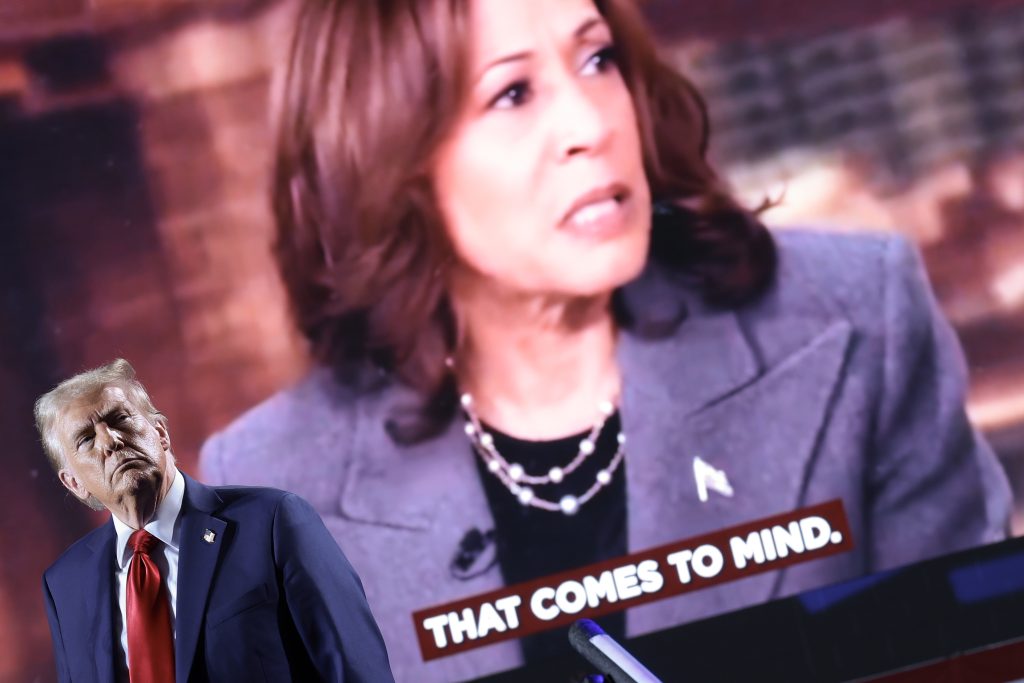Vice President Kamala Harris and former President Donald Trump made appeals to Muslim and Arab American voters in Michigan, key voting blocs in the swing state. Harris spoke at a rally in Waterford Township, Michigan, addressing the difficult year and expressing a commitment to helping end the Israel-Hamas war. She mentioned the recent death of Hamas leader Yahya Sinwar and called for diplomacy to resume talks between the warring factions to release hostages and initiate a ceasefire. If elected president, Harris pledged to do everything in her power to achieve these goals.
Both Harris and Trump campaigned across Michigan on Friday, with Trump targeting enclaves with significant Arab American and North African American populations. Despite Muslim Americans in Michigan typically voting for Democratic presidential candidates, recent polls have shown a shift amid concerns over the Biden administration’s handling of the humanitarian crisis in Gaza. Trump, who previously implemented a travel ban targeting Muslim countries during his administration, highlighted his endorsement from the Arab American mayor of Hamtramck and hinted at plans to reinstate the ban and include refugees from Gaza in a widened ban.
During his stop in Hamtramck, Trump interacted with residents of the city, some of whom are of North African or Middle Eastern ancestry, as per the U.S. Census Bureau. The city boasts an all-Muslim city council, and Mayor Amer Ghalib endorsed Trump’s candidacy. During the event, Trump discussed Sinwar, calling him a “not good person” and criticizing Biden’s handling of the situation in Israel. As Trump aimed to make inroads with Arab American voters in Michigan, he made controversial statements regarding his plans for a potential travel ban and his opinions on foreign policy in the region.
The appeals made by both Harris and Trump highlight the importance of engaging with Muslim and Arab American voters in Michigan, a crucial swing state in national elections. Harris’s focus on diplomacy and humanitarian concerns in the Israel-Hamas conflict contrasts with Trump’s tough stance on national security and immigration policies. The differing approaches of the two candidates reflect broader policy differences within their respective parties and may influence voter decision-making in the upcoming election. As the campaign season progresses, it remains to be seen how these appeals will impact voter turnout and support among Muslim and Arab American communities in Michigan.












